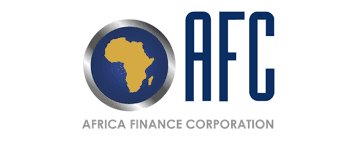Among the projects that will be developed are the modernisation of roads and the creation of processing units for agricultural products.
By becoming the 36th member state of the Africa Finance Corporation (AFC), Cameroon will work with the Corporation on key infrastructure to deepen integration, enable import substitution and develop manufacturing and industrial capacity to 40% of GDP, as part of the government’s Vision 2035 programme.
To date, AFC has allocated more than $300 million to Cameroon to take advantage of the country’s natural resources, including maize, cassava, cotton, cocoa, oil and gas, and energy transition metals such as cobalt and nickel.
“We are committed to working with the AFC to rapidly and sustainably build critical supporting infrastructure that will contribute to Cameroon’s development,” said Cameroon’s Prime Minister, Joseph Dion Ngute.
With a mission to solve the continent’s most pressing challenges, AFC has invested more than US$10 billion over the past 15 years, leveraging its unique access to global capital markets to spur development, integrate regional economies and transform lives.
Through its ecosystem-based investment approach, AFC has developed and financed projects such as Africa’s first carbon-neutral industrial zone, the Nkok Special Economic Zone, which has made Gabon the world’s largest exporter of veneer wood, bringing in $1 billion in annual export earnings and creating more than 30,000 jobs.
With an investment of US$150 million, the approach is being adapted by the Arise platform in Benin and Togo to generate US$750 million and US$2 billion in additional GDP respectively.
Over the past four years, AFC has partnered with 17 additional countries, joined this year by Angola and Tunisia.
Benefits to member countries include increased investment share, privileged access to AFC’s structuring and lending solutions, reduced project debt costs, and the corporation’s advisory and project development services.
As the largest economy in the Central African Economic and Monetary Community (CEMAC), Cameroon’s membership extends AFC’s presence to more than half of Central Africa, including Chad, Congo-Brazzaville, the Democratic Republic of Congo and Gabon.
“We are delighted to welcome Cameroon as a member of the AFC. The rapid expansion of our membership is a sign of confidence in our past collaborations and demonstrates an interest in partnerships and initiatives, which will further stimulate economic development and play a key role in strengthening key infrastructure,” said AFC President and CEO Samalia Zubairu.
Projects currently being explored by AFC and Cameroon include upgrading and maintaining roads to boost trade in the region, and financing agricultural processing facilities to support cottonseed and soybean exports.
In 2018, AFC made an investment in the Nachtigal Hydro Power Company, a 420 MW power plant that will increase Cameroon’s installed capacity by 30% and lower the cost of electricity generation.
Four years earlier, the corporation supported the modernisation and expansion of the Société Nationale de Raffinage (SONARA), Cameroon’s national refinery.
The Cameroonian government is looking to public-private partnerships to help build infrastructure that can create more value-added opportunities and have a real impact on its diverse population.
“Having already invested $300 million in our country, AFC has a proven track record in providing basic infrastructure. We look forward to solidifying our existing relationship,” concluded Prime Minister Ngute.
TE/lb/as/APA


